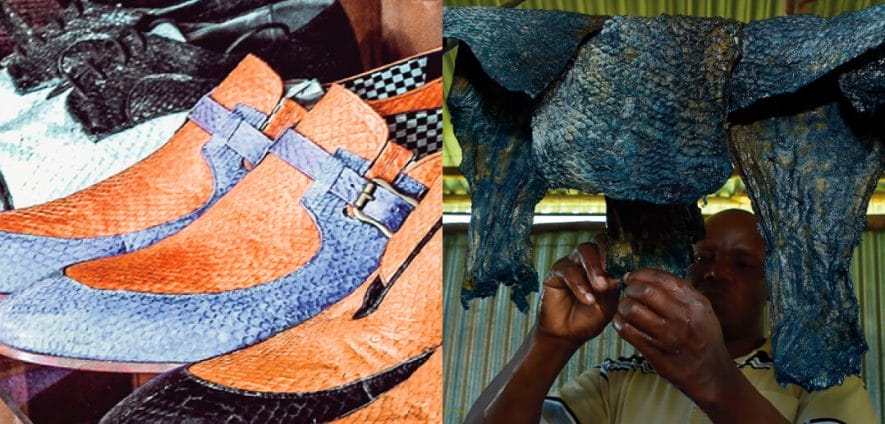The name of Siberia’s hub is Novosibirsk Technopark. Here they have implemented a few patents for processing fish skins: all of them are based on the employment of organic tannins whose environmental footprint is considerably low. The first experimental project, which dates back to 2015, was designed by two students, coming from Technopark Summer School: they focused on salmon skin, therefore “obtaining financial funds for supporting innovation – tell from Siberia -. In Berdsk they currently process 40 to 60 kilos of raw material a week”. Talking about outlooks, they aim to gain some market shares to the detriment of reptile skins, “python in particular – point out at Technopark -. If production goes up, fish skin will cost 1,5 to 2 times less; at that point, it might be feasible to take up to 3% of exotic leather market in the next 3 to 5 years”. Let’s move on, from Siberia’s fish prospects (possibly realistic) to Nigeria’s project, implemented by Mr Newton Owino, an industrial chemist. After observing how much fish, coming from Lake Victoria (by which lies Kisumu, his hometown), was regularly discarded, he decided to recycle its skin at least. Shortly after, he created Alisom, sort of a start-up company, which subsequently set in motion hundreds of people, who deliver fish skins to Owino’s company. Here, after cleansing, they dry them out on wooden beams. Soon thereafter, they soak skins into a solution, made with herbs and fruit, to make them softer and remove their characteristic fish smell. As a result of the process, they create a type of leather that looks like python, as much as the Siberian one, though it is much cheaper. Then they turn it into shoes and jackets at affordable price for local consumers: 25 euros per pair/item at most. The plan is proving effective and successful for the time being. That is why Alisom’s owner wants to open a training school to recruit more manpower.










